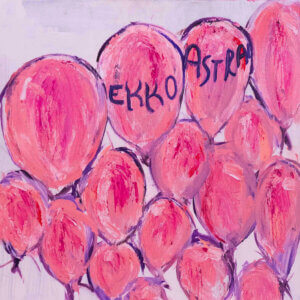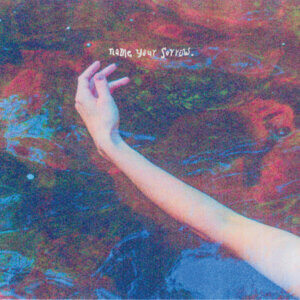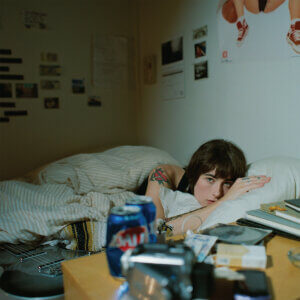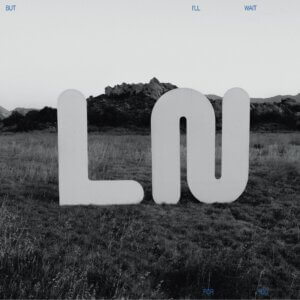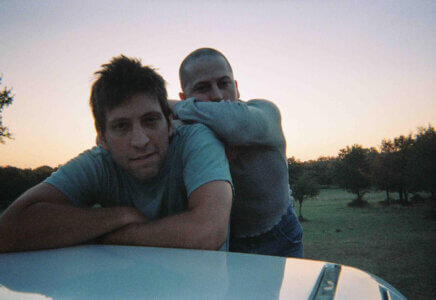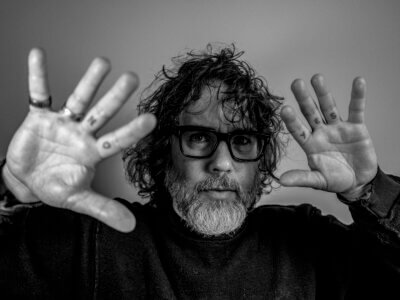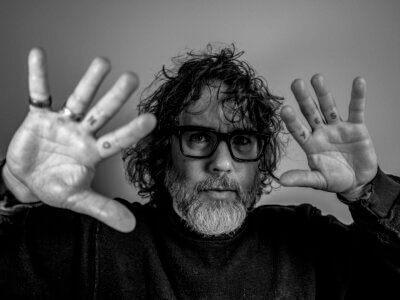Frigs’ Unusual Writing Behaviour
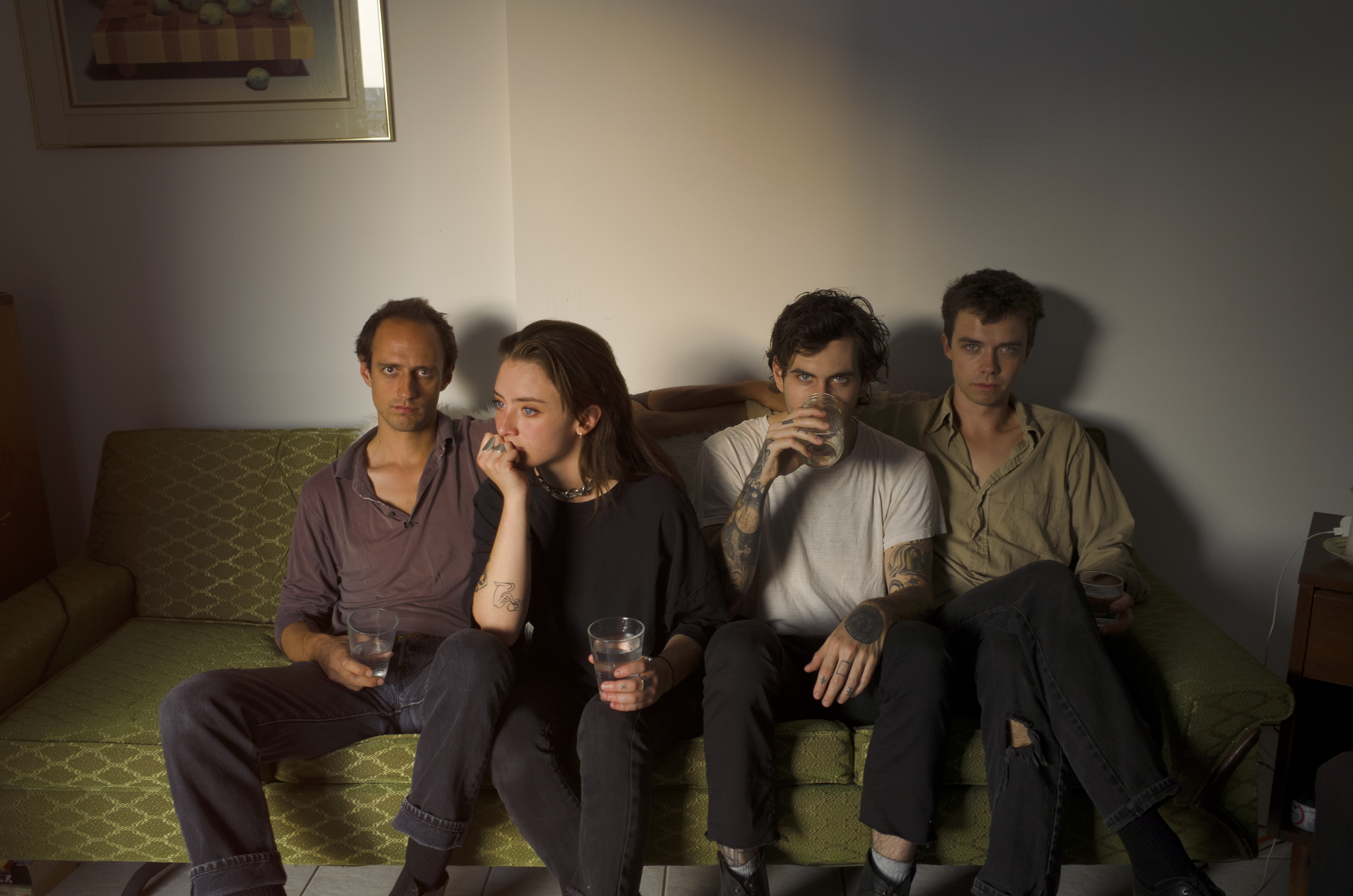
Through the past few years Frigs have established themselves as a powerhouse of Toronto’s abrasive rock scene. Following the Slush EP, the band set out with a home writing process that found them recording and writing in their own home for well over a year before finishing their album in a studio. The result is the beast of Basic Behaviour which sees the band at their most vicious and focused. We chatted with the band ahead of their February 1 show at Bar Le Ritz in Montreal to chat about their recording process and why they appreciate their home studio as much as a professional one.
Northern Transmissions: How did you want to reflect on internal conversations with ‘Solid State’ and how did you want to reflect this in the music around it?
Bria Salmena: I think most of the record is a self-reflection, a lot of my lyrics come from internal conversations I have with myself and then I flesh those ideas out. In a lot of music and art you’re interpreting those types of thoughts, whether they’re about yourself or an external issue. I took thoughts I was having at that moment of recording and threw them all on the table, which was a scary process for me. It’s an interesting way to interpret the instrumentation of a song too.
NT: What inspired you guys to self-produce your record and what do you think this offered you that bringing in someone else might have lost?
BS: The self-producing thing came from trying to work with other people to various degrees, but it never worked out. It had felt like our experiences working with other producers, they forced something onto us that we weren’t necessarily comfortable with. It wasn’t super actively but we felt those people were pushing a style or agenda, and they liked one aspect of our writing and were honing in on that. We were more freeform so we wanted to explore all the facets of our personality in our song writing. We didn’t want to funnel everything for the record. We realized that we could try and do it ourselves, and also save a lot of fucking money. Being at our home studio allowed us a lot of freedom and we really wanted that kind of experience.
What do you think your extended home recording versus your time fast-tracking with Ian Gomes brought to the final product of the record?
BS: It was two very different processes. With the home studio, we took a year and a half to write and record songs, not on purpose. We started and didn’t think much of it, we were taking our time and going through that because time wasn’t money. We were buying equipment as we went, and we gave ourselves time to wait. When we went to Union Sound though, it was like any studio where you’re paying per day and you’re paying for an engineer so you’re making that time worth it. We had done that before, so wanted to see both sides of the coin. We got to experience writing and recording a record over time versus doing it in three days. It definitely changes the style when you’re writing for specific processes like that. We spent more time on the ones we did at home but some we just recorded. Neither process is better, they’re just different.
NT: What about the writing of ‘Talking Pictures’ kick-started you guys through the final section of the record and what had been holding you back?
BS: Before we recorded ‘Talking Pictures,’ we’d gone through a member change, we’d finished a tour and wanted to release a record. We came back and had a better idea of how we wanted the record to really feel, so we knew we wanted to have songs that were hard-hitting and to the point, and could reflect this new energy that was brewing amongst the four of us. That’s why ‘Talking Pictures’ felt like a new beginning, it was a style of song we hadn’t really fostered yet. The other songs we just cradled and worked on style, but this one came very quickly and naturally, and we just felt like it would work, we were taking a risk to make it fit with the other songs. It all coincided with this new feeling we had and it gave us a push to represent how we had changed.
NT: There’s definitely a more immediate sound to your LP compared to the Slush EP, so what had you wanted to do differently going into this album?
BS: The Slush EP was written during a specific time in the band/life/our evolution. By the time the EP came out we felt like we’d already moved past those songs, and I think that’s something people don’t realize happens with bands a lot. By the time you hear recorded material a lot of bands are recording new music and have really moved on from the space those songs were recorded in. That’s even happened with Basic Behaviour, because now we’re excited to play all the new songs we’re writing and play those on tour with our record.
NT: Your live shows have always been a frantic experience to watch, so did this grow purely out of the music or have you been actively trying to push the envelope?
BS: We definitely are conscious of it. I don’t go into the audience every show, but our live shows are definitely something we work on a lot. It’s not staged though, we just treat every show like a different feeling and how we want to perform. Even if it’s a shit-show and no one is there, we try and fuck with it by playing weirdly, or experimenting on stage because it’s low risk. If it’s a big show I’ll feed off of what’s going on in the audience. We try and challenge ourselves a lot, sometimes I’ll say “It would be easy to go into the crowd this show, but if I don’t, how can I recreate that energy on stage.” I want the performance to feel natural, so I will feed off of the audience, how we’re feeling and there’s so many variables in a show.
Words By Owen Maxwell
Latest Reviews
Tracks
Advertisement
Looking for something new to listen to?
Sign up to our all-new newsletter for top-notch reviews, news, videos and playlists.
